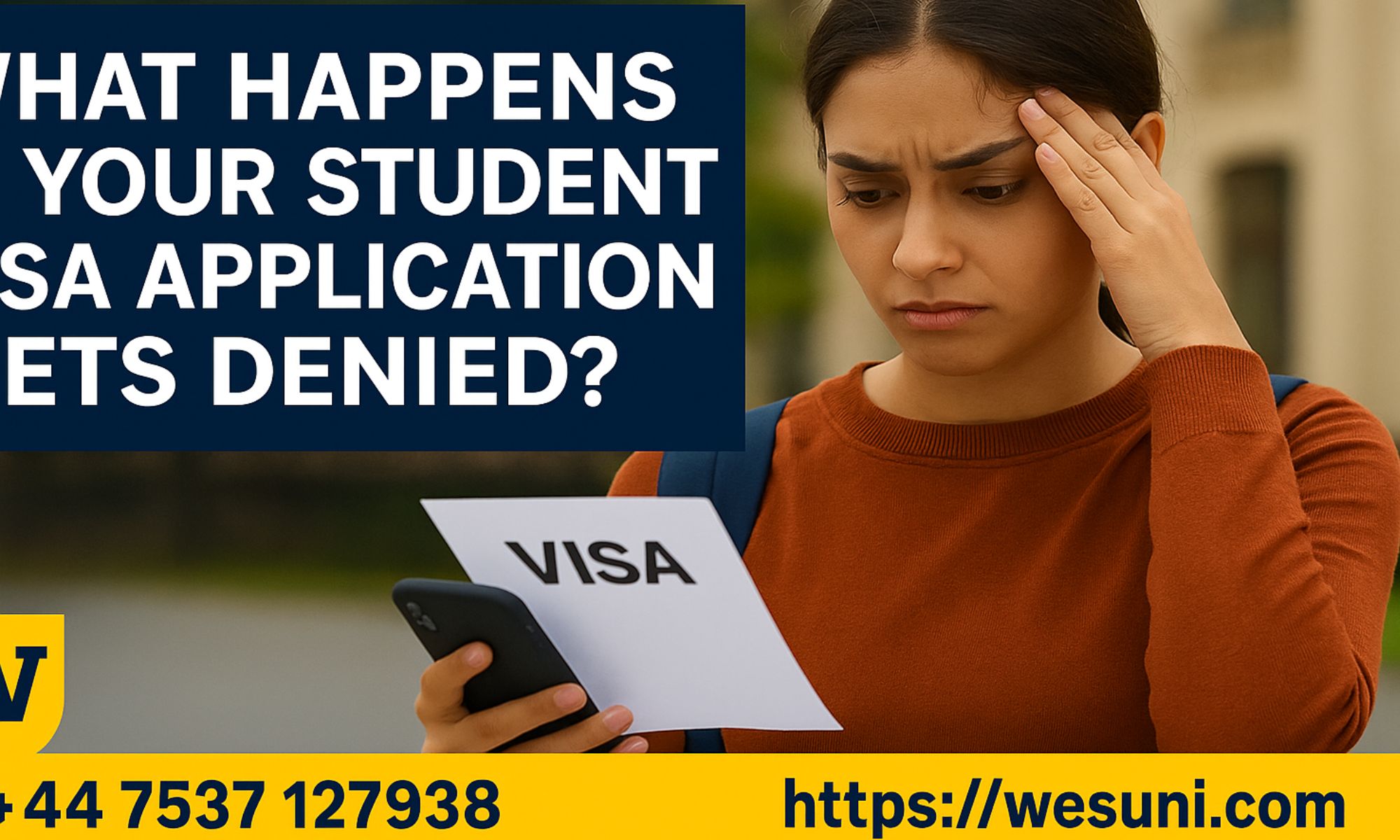Securing a student visa is one of the most important steps in your journey to studying abroad. You may have worked hard to get admission into a top university, but without a student visa, you cannot travel or legally study in your chosen destination. Unfortunately, many students face the stressful reality of having their visa applications denied.
If this happens to you, don’t panic. While a visa rejection is frustrating, it doesn’t necessarily mean the end of your study abroad dream. In this detailed guide, we’ll explain common reasons for student visa denials, what to do next, and how to improve your chances when reapplying.
Why Student Visas Get Denied
Embassies and consulates carefully review every application. Here are the most common reasons for rejection:
1. Incomplete or Incorrect Documentation
Missing documents or errors in your application can immediately lead to rejection. This includes:
- Incorrectly filled application forms.
- Missing bank statements or financial proof.
- Lack of admission confirmation from a recognized institution.
2. Insufficient Financial Proof
Visa officers want assurance that you can afford tuition and living expenses during your stay. If your financial documents don’t match requirements, your application may be denied.
3. Weak Ties to Home Country
Visa officers often deny applications if they believe you might not return after your studies. Lack of proof of strong ties to your home country (like family, property, or future job prospects) raises concerns.
4. Poor Interview Performance
Your visa interview is critical. Nervousness, vague answers, or inconsistent information can give the impression that you’re not genuine in your intentions.
5. Invalid or Fraudulent Documents
If your application includes fake or altered documents, it will almost certainly be rejected, and you may be barred from reapplying for years.
6. Academic Concerns
Students with poor academic history or inadequate preparation for their chosen program may face rejection if officers doubt their ability to succeed.
What Happens After a Visa Denial?
When your student visa is denied, you will receive a letter or notice explaining the reason. The outcome depends on the country’s immigration policy, but here’s what typically happens:
- You won’t be able to enter the country for study purposes with your current application.
- Your university admission may be deferred until you successfully obtain a visa.
- You may reapply immediately or after addressing the issues mentioned in your denial notice.
- In some cases, you can appeal the decision, but this depends on the destination country.
Steps to Take After a Visa Denial
1. Read the Rejection Notice Carefully
Your denial letter will specify the section of the law under which your visa was refused. Understanding this is the first step to correcting the problem.
2. Contact Your University
Inform your university’s international office. Many institutions provide support for visa issues and may extend deadlines or defer your admission.
3. Correct the Mistakes
If the denial was due to missing documents or insufficient funds, gather the required paperwork before reapplying.
4. Strengthen Your Financial Proof
Ensure you can show bank statements, sponsorship letters, or scholarship confirmations that meet embassy requirements.
5. Prepare for the Interview
If poor communication or lack of confidence caused the denial, practice mock interviews. Be clear about:
- Why you chose that specific course and university.
- How you plan to finance your studies.
- Your future career plans in your home country.
6. Consider Appealing
In some countries (such as the UK), students can appeal visa rejections under specific circumstances. Consult immigration experts before pursuing this option.
7. Reapply With Stronger Evidence
Once you have corrected the issues, you can submit a fresh application with confidence.
How to Avoid Visa Denial in the First Place
- Apply Early: Don’t wait until the last minute. Early applications give you time to fix errors if needed.
- Check Requirements Thoroughly: Every country has specific rules. Visit official embassy websites for accurate guidance.
- Organize Documents: Keep originals and photocopies neatly arranged.
- Be Honest: Never submit false information or forged documents.
- Practice Your Interview: Confidence and clarity are key.
SEO Keywords for Optimization
- student visa denied what next
- student visa rejection reasons
- what to do if visa is refused
- how to reapply for student visa
- student visa appeal guide
- international student visa tips
Final Thoughts
Having your student visa denied can be discouraging, but it’s not the end of your dream. The key is to understand why your application was refused and take corrective steps. Whether it’s strengthening your finances, improving interview preparation, or fixing paperwork, there is almost always a way to reapply successfully.
Remember, thousands of students face visa rejections every year—but many of them go on to reapply and succeed. With patience, preparation, and persistence, you can overcome this obstacle and continue your journey toward studying abroad.
✅ Don’t let a visa denial stop you. Get expert support to strengthen your application.
👉 Apply now at https://wesuni.com/apply


